![]() Philosophy is one of the most ancient arts and sciences that has — historically — centered around it’s literal name: ‘philos’ (love of), ‘sophia’ (wisdom). In the ancient world, this love of wisdom was not separated into competing arts and sciences. Philosophy included natural sciences, ethics, religious discussion, the arts, and more.
Philosophy is one of the most ancient arts and sciences that has — historically — centered around it’s literal name: ‘philos’ (love of), ‘sophia’ (wisdom). In the ancient world, this love of wisdom was not separated into competing arts and sciences. Philosophy included natural sciences, ethics, religious discussion, the arts, and more.
In the modern world, philosophy still tackles questions related to all these disciplines. But instead of dealing with specifics within any one field, philosophy deals with more general and fundamental questions.
For example, while a scientist may wonder ‘what colors can a fish see,’ a philosopher of science may wonder ‘how could we ever truly know about the perception of a fish?’
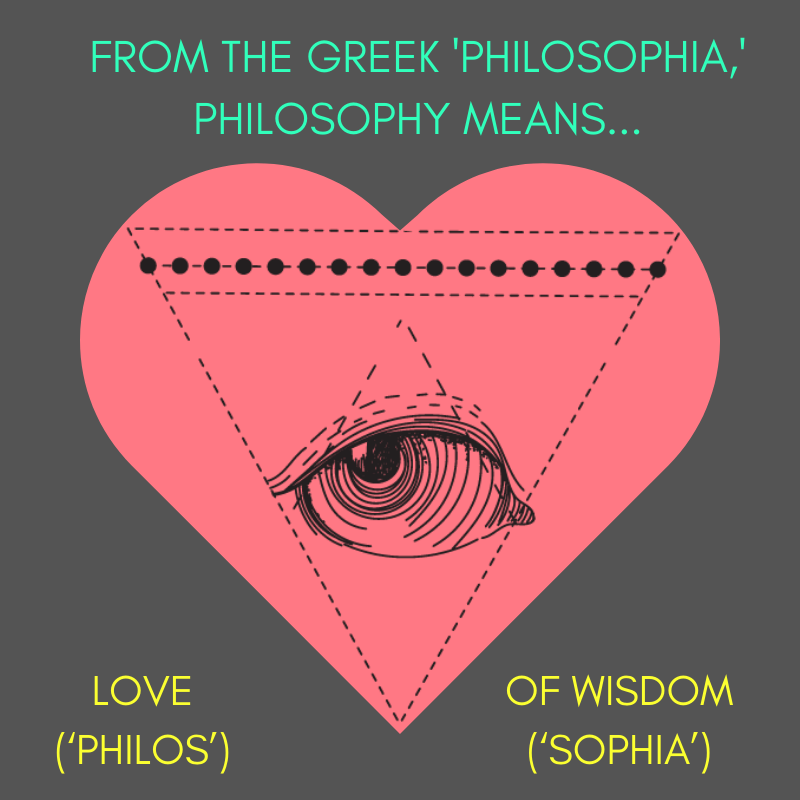
A unique breed, philosophers explore the abstractions and logical forms that underlie our most basic beliefs. While other disciplines may deal more in “how” a job-centered task gets done, those with a philosophical bent often wrestle with harder questions that inform what we should do, or whether our fundamental assumptions within a field are correct.
Philosophy is at times labelled a “useless” degree, because it does not directly focus on vocational or applied skills. But besides actual jobs in philosophy, philosophy degrees actually have one of the best track records for preparing students for graduate school, teaching students to read, write, and argue, and producing precise thinkers.
While many philosophy graduates may need to “catch up” with more job-centered skills upon graduation, over the length of a career philosophy majors have some of the highest earnings of all majors and are one of the highest-scoring majors on graduate admissions tests.
If you find yourself wondering about some of the most fundamental questions, over whether our assumptions are right, or we can really know what we think we do, philosophy may be a natural subject for you. If you’ve wondered what you can do with a philosophy degree, as well as what exactly is studied within a philosophy degree, scroll down to learn more.
Jump Down:
- What Philosophy Degrees Are Available?
- What Focus Areas Are There in Philosophy?
- Are Philosophy Degrees Available Online?
- What Can I Do With a Philosophy Degree?
Don’t see what you’re looking for? Be sure to check out DegreeQuery’s related coverage on the following topics:
- The 50 Best Online Associates Degrees of 2019
- The 25 Best Online Bachelor’s Degrees of 2019
- The 50 Best Online Master’s Degrees of 2019
- What Can I Do With a Liberal Arts Degree?
- What Degree Programs Can I Major in at a Liberal Arts School?
- What Jobs Can I Get With a Liberal Arts Degree?
- Top 15 Liberal Arts Schools in America
- What Can I Do With an English Degree?
- What Can I Do With a Creative Writing Degree?
- What Can I Do With a Fashion Degree?
- What Can I Do With an Archaeology Degree?
- What Can I Do With An Anthropology Degree?
- What Can I Do with an American Studies Degree?
- What is the Difference between an Academic and Professional Degree?
- How Do I Prepare for a Health Education Degree While in High School?
- What Can I Do With a Sociology Degree?
- What Degree Do Top Executives Have?
- What Are the Highest-Paying Entry-Level Jobs in Business?
What Philosophy Degrees Are Available?
Philosophy degrees have traditionally been studied at the bachelor’s and doctoral levels. Today, you can find philosophy degrees, or closely related degrees in liberal arts at the associates through doctoral levels.
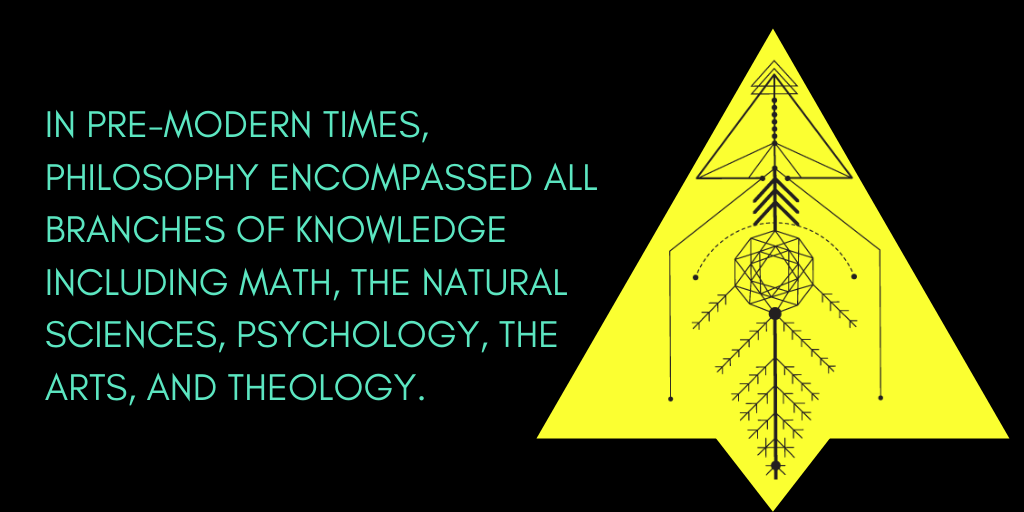
At the associate’s degree, students will typically take courses worth 60 credit hours over the course of around 2 years. Students will first endeavor upon courses that cover general education requirements.
General education requirements are meant to ensure that students are well rounded thinkers, articulate, data literate, and can write. These introductory-level college courses run the gamut of topics, typically including courses in natural science, social sciences, mathematics, the humanities, writing, data literacy, computer literacy, and religion, philosophy, or ethics.
Once students have completed their general education requirements, they will begin to take major courses. Typically there is a major core as well as the choice of some electives. At the associates-level, philosophy major courses are largely comprised of the major core. At higher degree levels, however, students begin to be able to tailor their degree to a greater extent.
Around one third of associates in philosophy degrees are devoted entirely to philosophy. In many programs that’s around 7 courses. While offerings will vary based on the areas of expertise of faculty members and university requirements, students in an associates in philosophy degree are likely to take some of the following courses:
- Symbolic Logic
- History of Western Philosophy I and II
- Eastern Philosophy
- Ancient Philosophy
- Social Philosophy
- Political Philosophy
- Philosophy of Religion
- Philosophy of Science
- 1-2 Ethics Courses
- Among Others
As philosophy at the associates level does not prepare you for any one job, but rather for continuing your studies in this or another discipline, many associates in philosophy programs are “transfer” associates. This means that students within the program will gain automatic admission to a four-year program upon their completion of the associates and the meeting of certain conditions.
Bachelor’s in philosophy degrees are the traditional entry point into academic philosophy. Aside from being a good preperatory degree for admission to law or business schools, bachelor’s in philosophy degrees are typically required for admission into graduate-level philosophy degrees.
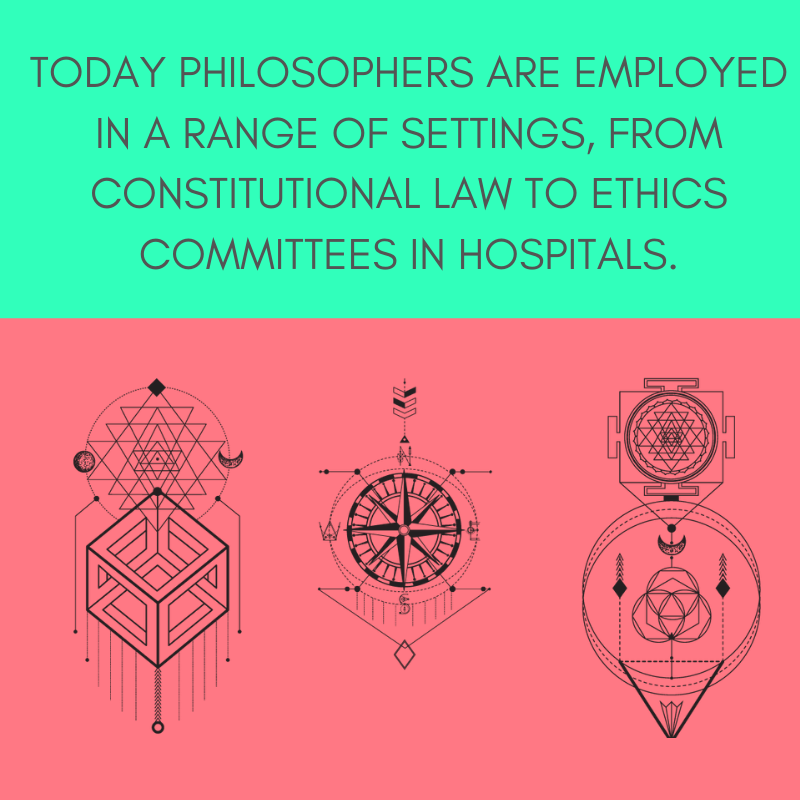
As with other graduate degrees, philosophy bachelor’s typically require 120 credit hours for completion (a task that typically takes 4 years of study). Bachelor’s degrees typically offer much greater opportunities to customize your studies, with many electives offered. As philosophy is a part of the broader study of western civilization, history, and history of ideas, students may often choose to augment their studies with courses in related disciplines as well.
While not every program will require one, many philosophy degree programs require the completion of a thesis or large research project towards the end of the program. In some programs, students will “defend” their thesis in front of peers.
While no two programs offer the exact same curricula, students in bachelor of philosophy degrees will likely have the option to take many of the following courses:
- Symbolic Logic
- Formal Logic
- Ancient Philosophy
- History of Western Philosophy
- Modern Philosophy
- Eastern Philosophy
- Political Philosophy
- Philosophy of Science
- Philosophy of War
- Medical Ethics
- Environmental Ethics
- Epistemology
- Aesthetics
- Metaphysics
- Kant
- Wittgenstein
- Socrates
- Among Others
Additionally, some degree programs will allow students to create custom degrees that couple philosophy with related disciplines. Examples include:
- BA in Linguistics and Philosophy
- BA in Legal Studies and Philosophy
- BA in Physics and Philosophy
- BA in Religion and Philosophy
- Among Others
Master’s degrees in philosophy typically take two formats. Traditionally the most common form of master’s in philosopy was an “en route” master’s in which students are admitted to a doctoral program and receive their master’s part way through their course of study. This was historically the primary way in which students achieved master’s degrees due to the prominence of doctoral degrees. Among professional philosophers, a doctoral degree is typically required to gain a teaching position.

In recent years, a number of “terminal master’s” have begun to crop up. These are master’s degrees that do not have a built in connection to a doctoral degree. While many students may use a terminal degree to later transfer into a doctoral program, there’s no necessary connection.
While terminal master’s are not exceedingly common in philosophy programs, they are a great option for students who are trying to discern if they would like to pursue the academic discipline of philosophy further. Additionally, students wanting to gain admission to top-tier doctoral programs yet with less than steller undergraduate grades may find themselves able to “bridge the gap” with a master’s degree.
Both terminal and en route masters degrees typically require two years of study. These programs typically culminate in a thesis on an areas the student would like to specialize in. A thesis is generally around 100 pages of written work that summarizes the current state of a field of study. Students show the ability to understand and negotiate different view points of professional thinkers. And they arrange the work of others into an argument of their own. One difference between a thesis and a doctoral dissertation, however, is that a thesis is not considered original research like a dissertation.

Students typically begin to specialize in one area of philosophy in their master’s. For a list of specialization areas, skip to the next section.
Finally, doctoral degrees in philosophy typically come in one form, a doctor of philosophy (Ph.D.) in philosophy. Ph.D.’s are research doctorates, meaning that two of the primary aims of the program are (1) to prepare graduates to teach at the university level, and (2) to support original research in the form of a dissertation.
All successful Ph.D. candidates submit and defend a dissertation. Dissertations are several hundred page documents of original research. In theory, dissertations should be publishable in a peer reviewed journal. Not all are, but they are expected to be of this quality.
What Focus Areas Are There in Philosophy?
In a way, every other subject can be accounted for within philosophy specializations. Philosophers may focus on applying philosophical practices and thinkers to analyze any other subject material. Some philosophers may focus on the environment, some on art, some on politics, and so on.
With that said, there are 6 major fields of inquiry within philosophy. While there are many subdisciplines, the following categories of inquiries are distinct because they are concerned with different sorts of foundational principles and ask different sorts of questions.
Are Philosophy Degrees Available Online?
Historically, philosophy has been one of the liberal art degrees least available online. In all likelihood when you think of a student of philosophy, you think of them debating in a spirited way around a small lecture table, or poring over books in the library. By and large these images have been the reality of philosophy students, and still are. Many of the best liberal arts schools in the nation do not offer online degrees.

With that said, more and more schools are opening up the entire range of their degrees to online delivery. And unlike degrees that require hands-on laboratories, there is no reason why philosophy can’t be taken online.
In short, you can find philosophy degrees of every level online, though not nearly as many programs are available online as in person.
The study of epistemology seeks to answer questions on what and how we can know things. Meaning “theory of knowledge,” epistemological thinkers seek to examine methods for discerning what is knowledge, whether or not given pieces of knowledge are valid, and the scope in which we can be said to say we know something.
The study of ethics has fascinated thinkers (and most everyone) from the dawn of civilization. Ethics deals with questions such as ‘what is good,’ ‘how do we live a good life,’ and ‘what does a good society look like?’ Over time, specialized branches of ethics have spawned thought integral to race relations, ethical medical treatment, whether war is justifiable or not, and treatment of the environment.
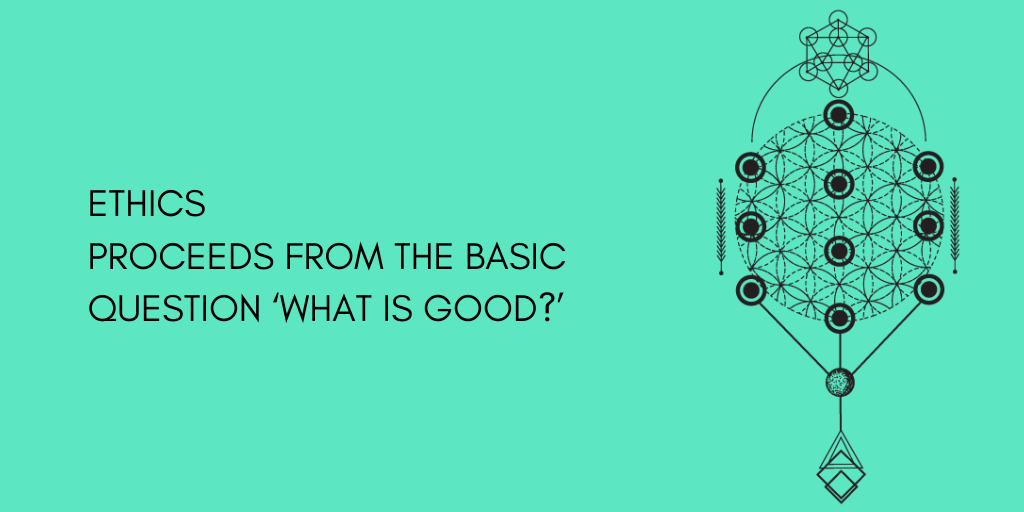
The study of logic focuses on showing and exploring “how” you know something. Logical explorations in philosophy range from mathematical proofs (formal logic) to discussions that provide the bedrock for game theory, to less formal logic such as how many individuals routinely participate in arguments and the proving of points.
The study of metaphysics is perhaps the oldest in the philosophical world, and seeks to answer questions about “where we came from.” Metaphysics deals with the “being” of objects and seeks to describe ways in which some types of objects are “real” or unreal. Metaphysics is also deeply embedded in many theological inquiries.
The study of aesthetics seeks to expound on what is beautiful. While people can point to what they find beautiful, what is it about what they perceive that is essential to beauty. This branch of philosophy seeks to outline and trace forms of art, relationship, and life itself that seem to approach some transcendent level of beauty.
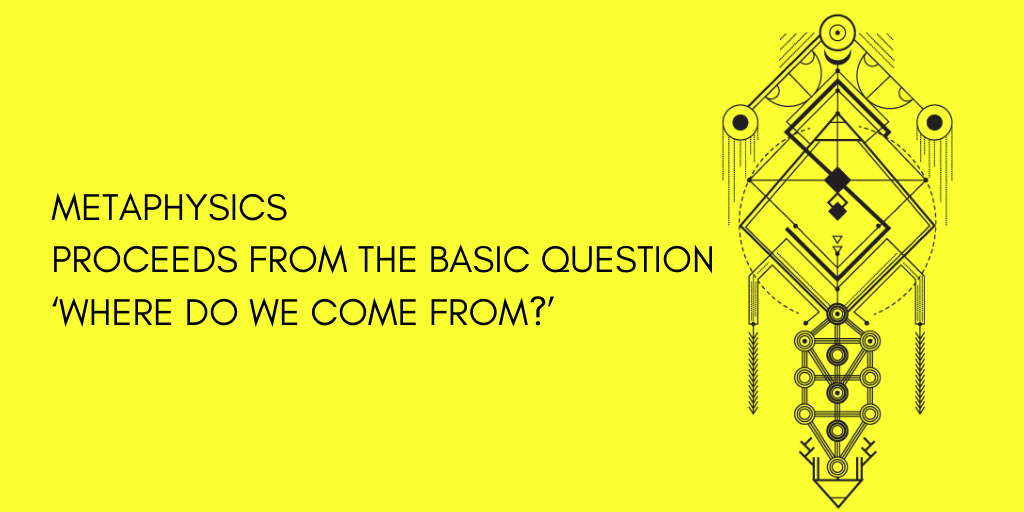
The study of political philosophy focuses on how we should act collectively. This branch of philosophy seeks rationales for why one form of government may be better than another as well as helping to produce concepts by which governments may be improved.
What Can I Do With a Philosophy Degree?
We should start by saying that there are many, many things one can do with a philosophy degree. Many politicians, religious leaders, and CEOs have all studied philosophy. Many of the world’s most lauded scientists have well considered the fundamental underpinnings of their craft. And many of the world’s finest artists would also call themselves philosophers.
With that said, the academic study of philosophy most directly prepares students to be professors of philosophy. This is particularly true for students at the doctoral level, which is generally the entry point for teaching philosophy at the university level.

Philosophy professors may lead very different careers depending on where they teach as well as the size of their following. Some of the most famous philosophy professors have been well-known thinkers before their entry into academia. These superstar professors may be paid to essentially keep writing, go on talk circuits, or serve as experts in PR settings.
Most philosophy professors do end up teaching a substantial load of courses. Philosophy is most commonly taught at the bachelor’s level. And many students elect to take at least one philosophy course as a general education requirement. Philosophers working at more research-centered institutions may spend a great deal of their time researching or helping graduate students with research.
As with other humanities disciplines, the present state of academia does not support a huge number of tenure track positions. Tenure ensures that professors can research as they wish without fear of retribution. And also often comes with higher pay. For that reason we’ll divide the average salary of philosophy professors into two categories. For tenured philosophy professors the average salary is $71,620. For non-tenured lecturers, this number can drop close to $30,000 a year depending on course load. Finally, for professors at top tier universities, as well as research professors, salaries above $100,000 a year are common.
For philosophy graduates who can’t find a tenure-track position in philosophy, or wish to teach at another level, philosophy degrees can be great preparation for becoming a teacher in one of the other liberal arts. Many philosophy degrees provide a strong back drop through which to understand general cultural trends as well as the history of thought. The history of thought is integrally tied to the understanding of most other disciplines within the humanities.

Common locations of work for liberal arts teachers may include classics academies, private schools, in tutoring roles, or at the university level. The average salary for liberal arts teachers is presently $69,000, though this number can vary quite a bit depending on the location of your employment.
If you have a calling, philosophy degrees can be great preparation for entering training to join the clergy as a priest or minister. Philosophy hones many of the same close reading, abstract thinking, and communication skills that are sought in clergy members (and can help you excel in theology school).
Clergy members work in a wide variety of Christian denominations. Similar positions are available within all of the major religions, though may have different restrictions for entry.
The average salary for a Christian minister in America is $49,978, though this number varies widely depending on the size of the church being ministered to.
Many philosophy graduates go on to make top-notch lawyers. The study of law is embedded with philosophy, and the act of crafting an argument based on principles of law and the specifics of a situation is a natural situation for many philosophy graduates to find themselves in.
While earnings vary widely depending on the location of your legal work and what type of law you may practice, lawyers make an average salary of $141,890.
Don’t see what you’re looking for? Be sure to check out DegreeQuery’s related coverage on the following topics:
- The 50 Best Online Associates Degrees of 2019
- The 25 Best Online Bachelor’s Degrees of 2019
- The 50 Best Online Master’s Degrees of 2019
- What Can I Do With a Liberal Arts Degree?
- What Degree Programs Can I Major in at a Liberal Arts School?
- What Jobs Can I Get With a Liberal Arts Degree?
- Top 15 Liberal Arts Schools in America
- What Can I Do With an English Degree?
- What Can I Do With a Creative Writing Degree?
- What Can I Do With a Fashion Degree?
- What Can I Do With an Archaeology Degree?
- What Can I Do With An Anthropology Degree?
- What Can I Do with an American Studies Degree?
- What is the Difference between an Academic and Professional Degree?
- How Do I Prepare for a Health Education Degree While in High School?
- What Can I Do With a Sociology Degree?
- What Degree Do Top Executives Have?
- What Are the Highest-Paying Entry-Level Jobs in Business?
